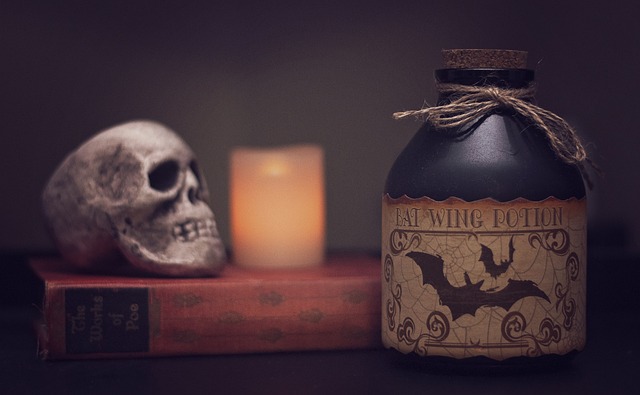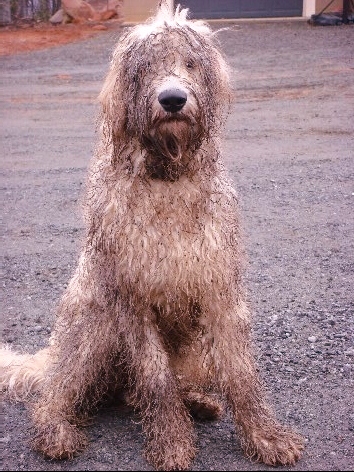“What do you know about rye grains?”
This was a question from my boss at the distillery I worked at.
“I know that we use them,” I’d answered. I’d been working for the company for what felt like mere minutes at that point.
“Well, you’d better know a helluva lot more than that by tomorrow morning at nine, because a journalist is going to call you with questions, and I’ve pitched you as an expert. Best crack open some books.”
Example number one.
My boss: “You’re a writer, right?”
Me: “Yes?” I soon came to answer every question of his with an upward pitch of hesitation.
My boss: “Great. Write a technical manual for the distillery. Standard Operating Procedures, maintenance schedules, testing protocols—the whole kit and kaboodle.”
Me: “Wait. I write children’s literature. For children.”
My boss: “Good point. Do not, under any circumstances, allow the machinery on the production room floor to have dialogue. Or feelings.”
Example number two.
I was undecided for all of about 30 seconds before sharing with my boss the exciting news that I had connected with a woman who owned an old historic farm and was interested in working with me on planting a small number of heritage grains. She wanted to do something environmentally interesting with the property, and I’d finally found a way to potentially run a small experiment for our distillery that would not cost an arm and a leg.
“Great,” my boss responded. “You should apply for the educational grant that’s on offer to the spirit industry right now.”
“A grant?” I said this like it’s the first time I’d used the word.
“Yes.”
“I would have to apply? Like … fill out an application? Or is it a bit more like a research paper?”
“No. It’s like a grant proposal. Documents you submit to secure funding for a research project.”
“Project?? This was going to be an experiment for our distillery.”
He nodded and typed something into his computer. “It still will be. Only now, it will benefit the whole industry.” He punched a key and spun around in his office chair to face me. “I’ve just sent you the application. Make sure it shines because you’re up against a bunch of university professors and professional research organizations.”
My eyes popped wide. “Oh, good god. I don’t know how to do this. How much time do I have before it’s due?”
“Seven days.” Then he glanced over his shoulder. “Six. You’ll be fine.”
Example number three.
I came home that night, curled up on the couch in a little ball and heard Dave, my partner, whistling in the kitchen and then making his way to the living room. “Here you go,” he said. He had two drinks in his hands, one outstretched to me.
I closed the one cracked eye I’d used to identify him with and did not move to take the drink. “I hate my boss.”
He chuckled. “You love your boss.”
“He sets me up to fail.”
“I challenge you to learn.”
“Your learning challenges suck all the fun out of working, and living, and breathing. I want to be less challenged. I want to be less learned. I like breathing, and I don’t want it to be so difficult.”
“Have I ever let you fail?”
“And—” I interrupted, “I would like to come home and be able to complain about my boss. That is a right of every person in a relationship.”
His brows rose an inch. “Is this a safe space for me to complain about my employees too?”
“Yes,” I smiled. “Everyone except me. If you have complaints about my work, then we have to set up a formal meeting with HR at the office. This might be your safest method so that I’m not throwing kitchen knives at you from across the room once I hear of them.”
He reached out again to hand me a glass. “What about poisoning the other person’s drink if you’re unhappy with them? Is that off the table as well?”
I took it, and enjoyed a long swig, then looked up at him. “You love your employee.”
“She challenges me.”
“Yes, but she knows more about rye than anyone else in your distillery. And she is the only person who knows how to write a technical manual in your company.”
“And,” he added, “she will shortly know how to successfully write and win a grant proposal.”
I groaned. “She is exhausted.”
“She is indispensable.”
“She is cranky.”
“She is invaluable.”
I looked at Dave and gave him a small smile. “She appreciates hearing this.”
“Great,” he said, and made his way back toward the kitchen. “By the way, how much experience do you have with—”
I quickly buried my head beneath a couch cushion. I did not hear whatever it was I would soon have experience with. I would remain blissfully ignorant for just a few moments more because I felt certain that I was not missing out on an opportunity. The illustrative scenarios above are but a smattering of my future, as one thing I knew for sure, there would be ample examples to come.
~Shelley
For the time being, the blog is closed to comments, but if you enjoyed it, maybe pass it on to someone else. Email it, Facebook it, or print it out and make new wallpaper for the bathroom. If it moves you, show it some love and share. Cheers!
Don’t forget to check out what’s cookin’ in the Scullery and what we all gossiped about down in the pub. Or check out last month’s post and catch up.

















